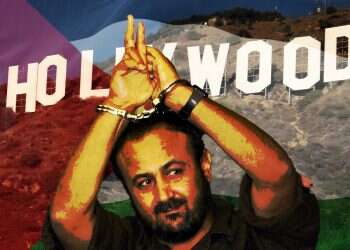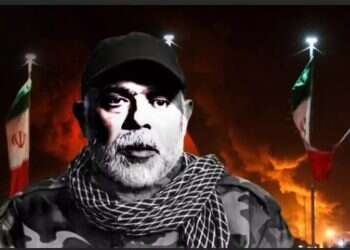Exactly 33 years ago, on Nov. 9, the First Intifada erupted. And what an eruption it was. Every Palestinian city, village, neighborhood, and household decided all at once to join mass riots and clashes with the IDF and Israeli settlers.
Follow Israel Hayom on Facebook and Twitter
The media adopted a brand new vocabulary using words like demonstrations, stone-throwing, Molotov cocktails, clubs, rubber and plastic bullets, mass arrests, and terrorist attacks.
There had been stillness and quiet in Judea and Samaria for two decades until the Palestinian protests erupted in our lives like a volcano that could not be controlled.
To put it in a modern context, the Intifada broke out like the coronavirus pandemic – nobody expected it, and for months on end, nobody knew when the right remedy would come along.
The 1987 Intifada was the first security incident that stood out for reasons other than the number of its casualties.
Many speculate about the reasons that could have possibly led to the outbreak of such a violent uprising – the lack of diplomatic horizon at the time, high levels of unemployment, especially among the Palestinian youth, the 1985 Jibril prison exchange agreement in which Israel released 1,150 security prisoners in exchange for three Israeli prisoners – a move that was interpreted by the Palestinians as a sign of Israel's weakness.
But very few speak about the consequences of the Intifada that affect our lives to this day.
The First Intifada damaged Israel's deterrent force. A direct line runs between the outcome of the 1973 Yom Kippur War, the Palestinian insurgency in Jordan and Lebanon in the 1970s, and the awakening of the settlers of Judea and Samaria in the 1980s. The mighty Israel that was dreaded after the 1967 Six-Day War was no longer intimidating and its security forces were no longer deterring.
The photograph of the 10-year-old boy throwing a stone at an Israeli tank in Nablus will forever be remembered as the Palestinian "David" who threatened the Israeli "Goliath" and succeeded.
It would take Israel a good few more years to restore its deterrence.
The First Intifada also damaged Israel's economy. Before the outbreak of the protests, the army had a minimal military presence in Judea and Samaria. After the events of December 1987, though, the Israeli government had to dispatch one military division to Judea and another one to Samaria. Tens of thousands of reservists were summoned from their workplaces and were sent to deal with riots in Ramallah, Nablus, Hebron, Gaza, and Rafah.
These military expenditures slowed down the Israeli economy significantly. The Intifada necessitated unexpected changes in the budget that had not been seen in the government since the Six-Day War.
The Intifada also undermined Israel's international image – Western viewers were sick and tired of seeing footage of the daily events.
For five years, their beloved TV shows kept being interrupted by annoying news of Israeli reservists instructing small children and their fathers to erase slogans from walls or remove flags from power poles. An image strikingly different from the courageous IDF soldiers Westerners envisaged before.
The Intifada eroded Israel's international standing, too. On a visit to Scandinavia, I asked them why there were against Israel. "Before 1967, we sent 50,000 volunteers to the kibbutzim. We supported you. But since you occupied the West Bank, you have lost our support. Not we support the Palestinians," one of the Danes answered.
It's been 33 years since the First Intifada, and we have still not learned our lesson. We haven't internalized the fact that even after decades of stillness and quiet, the Palestinian demand for liberation and independence might still rear its head. We chose to see the PLO problem abroad and refuse to see that there is a PLO right here at home.
Two significant events in Israeli history were not foreseen by our military intelligence – the Yom Kippur War and the First Intifada. We have learned our lesson from the wretched Yom Kippur War. Instead of doing the same with the First Intifada, we chose to blame the Israeli settlers of Judea and Samaria.
Subscribe to Israel Hayom's daily newsletter and never miss our top stories!




